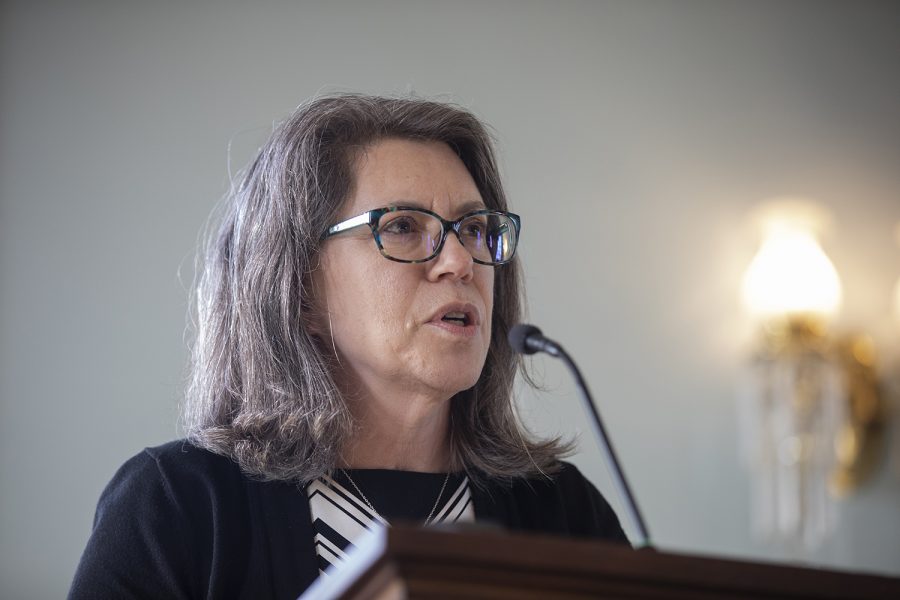UI Faculty Senate elects new officers, announces senators and councilors
The University of Iowa Faculty Senate elected a new president, vice president, and secretary for the 2020-21 academic year in a virtual meeting Tuesday.
Faculty Senate President Sandra Daack-Hirsch speaks during the Faculty Senate meeting on April 23, 2019.
April 28, 2020
University of Iowa Faculty Senate announced the results of its 2020-21 election at a Zoom meeting Tuesday, appointing Joseph Yockey as the new president, Teresa Marshall as vice president, and Ana Rodríguez-Rodríguez as secretary.
Eighteen faculty members were elected to Faculty Council, and 79 to Faculty Senate. Members of Faculty Council also serve in Faculty Senate.
Yockey previously served as vice president of the organization before taking his new position. Former president Sandy Daack-Hirsh will serve in the officer role of past president in the 2020-21 academic year.
The vice president of Faculty Senate traditionally serves as president-elect for the following year, while the secretary position lasts one year.
The election for officer, councilor, and senator positions was conducted online beginning March 23. Senators have been elected online in the past, but this was the first time officer elections were not conducted in-person, said Daack-Hirsh in an interview with the DI.
Before moving to an online-election format, Faculty Senate and Faculty Council had to make sure they knew the technological capacity and mechanics for how it would work, Yockey said in an interview.
Yockey said during Tuesday’s meeting that as Faculty Senate president he wants to focus on strategic initiatives to help empower faculty advancement. The first such initiative will be to create a commission specifically for faculty advancement through developing ideas for how to improve the lives of faculty.
RELATED: University of Iowa Faculty Council voices concern on fall semester, tenure
The two areas the commission will focus on are faculty morale and faculty recruitment and retention, Yockey said. His goal is to find ways to better recognize faculty achievement and create more opportunities for meaningful social, emotional, and intellectual support, Yockey said.
The faculty recruitment and retention aspect of this initiative will focus on faculty members of underrepresented groups and ways to improve rates of diversity recruitment and retention, he said.
The second initiative will involve working toward a university-wide system for faculty to submit annual performance reviews for deans and associate deans, giving faculty a greater voice within their colleges and departments, Yockey said.
“If faculty have legitimate questions or concerns about the competence, values, qualifications, or decisions of their college administrators, they deserve a means to provide critical feedback to someone who’s in a position to make a change,” Yockey said. “We need now more than ever, the right people in positions of authority.”



